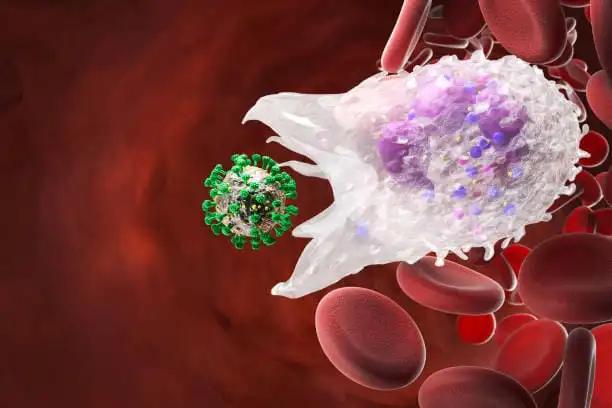KEY TAKEAWAYS
- The phase 1 study assessed the safety and efficacy of rapcabtagene autoleucel in treating R/R DLBCL pts.
- The study’s primary endpoints were safety and dose-limiting toxicities. Secondary measures included response and cellular kinetics.
- Rapcabtagene autoleucel showed long-lasting efficacy and manageable safety while maintaining T-cell stemness.
Rapcabtagene autoleucel (YTB323) is a personalized T-cell therapy that targets CD-19, made using the accelerated T-Charge™ platform, which reduces the production time to less than 2 days.
The participants in this study had received at least two prior treatments for relapsed or refractory Diffuse Large B-cell lymphoma (R/R DLBCL), showed measurable disease at the time of joining the study, and had an ECOG performance status between 0 and 1.
The treatment consisted of a single dose of rapcabtagene autoleucel, varying across four levels: 2.5×106, 12.5×106, 25×106, or 40×106 CAR+ cells. This was administered following a lymphodepleting regimen, and bridging therapy was also allowed.
The primary endpoints were safety and dose-limiting toxicities, while the secondary endpoints were response and cellular kinetics.
As of September 15, 2022, with a median follow-up of 12.7 months, 47 individuals were treated with rapcabtagene autoleucel across four different dose levels: 4 at DL1, 30 at DL2, 7 at DL3, and 6 at DL4. The median age of the patients was 65 years. Most patients, 72%, had undergone two previous treatments, and 30% had a history of autologous stem cell transplantation.
The median duration since their last relapse or disease progression was 2.8 months. At the DL2 dose level, 73% achieved a complete response, with a median response duration of 15.5 months. After 3 and 6 months, the complete response rates were 60% and 61.5%, respectively. Every participant reported at least one adverse event of any grade, with 96% experiencing one or more events of grade 3 or higher.
A total of 16 patients (34%) had cytokine release syndrome (CRS), including one severe grade-4 case. For those on DL2, CRS typically began 8 days after treatment and resolved in about 6 days.
Five patients (11%) developed immune effector cell–associated neurotoxicity syndrome (ICANS): 3 at DL2 and 2 at DL4. Two patients at DL2 had grade-3 ICANS; there were no grade-4 or 5 events. The median time to ICANS onset at DL2 was 16 days, with a median resolution time of 16 days. The therapy also showed strong in vivo T-cell expansion, maintaining T-cell stemness and the CD4:CD8 ratio.
Rapcabtagene autoleucel maintained T-cell stemness and showed encouraging, long-lasting efficacy alongside manageable safety risks. A dose level of DL2, containing 12.5×106 CAR+ viable T cells, is suggested for further Phase II/III studies.
Source: https://clml-soho2023.elsevierdigitaledition.com/532/index.html
Clinical Trial: https://classic.clinicaltrials.gov/ct2/show/NCT03960840
Shah, N.N., Flinn, I., Kwon, M., Jäger, U., Briones, J., Bachy, E., Blaise, D., Boissel, N., Kato, K., Riedell, P.A., Frigault, M.J., Shune, L.O., Teshima, T., Ciceri, F., Fleming, S.A., Ferrari, S., Pearson, D., Whalen, J., Zia, A., Davis, J., Barba, P. Updated Results From a Rapcabtagene Autoleucel (YTB323) Phase I Study Demonstrate Durable Efficacy and a Manageable Safety Profile in Patients With Relapsed or Refractory Diffuse Large B‑Cell Lymphoma (R/R DLBCL).



